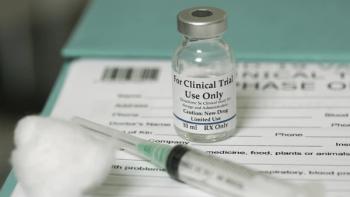
Second IOMED program at ASCRS meeting
Next month in Boston, the American Society of Refractive Surgery (ASCRS) will host optometrists its second Integrated Ophthalmic Managed Delivery Model (IOMED) track at the group’s annual meeting. The format will be similar to last year’s meeting with a half-day symposium as well as courses that will be available for optometrists to earn CE credit.
Next month in Boston, the
What won’t change is the categories of optometrists who are welcome to come. Currently, private-practice ODs are not permitted to attend. (See “
Following last year’s IOMED program, members of the IOMED task force met with a group of optometrists unhappy with the private-practice optometry restriction in the hopes of effecting change to this year’s program.
“It was extremely disappointing to all of us after the great meeting we had in San Francisco that they didn’t open the meeting,” says Birmingham, AL optometrist Jack L. Schaeffer and Optometry Times Editorial Advisory Board member. “We were hoping that they would open the Boston meeting to all optometrists. We gave them latitude to make some concessions for them to live by their motto of improving patient care. You can’t get credit for going to all courses. No one should restrict education. If the goal is to help the public get better eye care, why would anyone restrict who goes to a lecture? Why would you not want to educate an optometrist who you accept patients from? It’s about public welfare.”
IOMED task force Chairperson Stephen S. Lane, MD, of St. Paul, MN, says that following the meeting with concerned optometrists at last year’s ASCRS meeting, the ASCRS board met to consider the proposal to open the meeting to a greater attendance. “While there was a lot of support on the board for such a move, the board’s consensus was to ensure the IOMED program is on the right path,” he says.
The ASCRS board will continue to
“The opportunity is there to expand it, especially if there is the desire on the part of the optometrists,” says Dr. Lane. “There continues to be positive feedback. We’re ahead of last year in terms of optometrist preregistration already. People speak with their feet. If there is an increase in the number of optometrists who attend, that’s a vote of confidence on the part of optometry to ASCRS that they like coming to the meeting, they would like to expand it to their brethren who don’t fit into these categories. If the numbers decrease, then it doesn’t make a lot of sense to expand who we would allow to come. The numbers speak to the success of what we’re trying to do. It’s a vote of confidence that the board of ASCRS would like to see before we go about expanding on it.”
Last year’s symposium focused on the business of optometry and ophthalmology, clinical cases, and new technology. This year’s symposium will highlight:
• Advanced technology (AT) IOLs, including management of patients with AT IOLs, how to choose good AT IOL candidates, and complications with AT IOLs
• Business, including how to compensate optometrists and the roles of optometrists in integrated models
• Clinical cases panel, back for a return gig due to popularity of last year’s discussionODT
Poll: Do you think ASCRS should welcome all optometrists, regardless of mode of practice, to its annual meeting?
Newsletter
Want more insights like this? Subscribe to Optometry Times and get clinical pearls and practice tips delivered straight to your inbox.














































.png)


